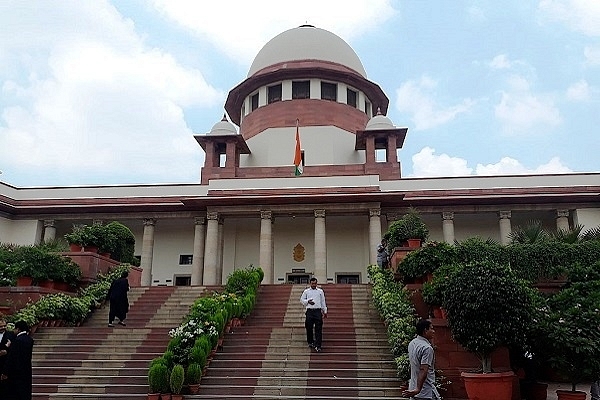
SC To Consider Hearing Plea Against Grant Of Remission To 11 Convicts In Bilkis Bano Case
In May, 2022, the Supreme Court directed the Gujarat government to look into the remission of the convicts.
The Supreme Court also held that the 1992 remission policy should be applied in this matter as that was the policy in effect at the time of conviction in 2008.
The Supreme Court on Tuesday agreed to consider listing a plea challenging the grant of remission by the Gujarat government to 11 convicts in the Bilkis Bano gangrape case.
A bench headed by Chief Justice N V Ramana took note of the submissions of senior advocate Kapil Sibal and lawyer Aparna Bhat against the grant of remission and consequent release of the convicts in the case.
“We are only challenging the remission and not the Supreme Court order. The Supreme Court order is fine, My Lords. We are challenging the principles on the basis of which remission was granted,” Sibal said.
The apex court had earlier asked the Gujarat government to consider the convicts' plea of remission.
Last week, the eleven convicts of the case were granted remission after a panel of the Gujarat government approved their application.
As details of the remission emerged, it was revealed that the convicts were granted remission under a 1992 policy. The natural question that followed was why the remission was granted under a relatively liberal policy when a stricter policy of 2014 existed, which could have ensured that the convicts stay in jail.
What Are The Two Remission Policies Applicable In Gujarat?
The 1992 Remission Policy: by today’s standards, the 1992 policy was liberally drafted. As the policy did not have restrictions on remission, most of the convicts with recorded ‘good behaviour’, having completed a considerable number of years in prison, were remitted under the said policy.
However, the Supreme Court in 2012 invalidated the 1992 remission policy and the Gujarat government was asked to formulate a new policy based on the guidelines issued by the Supreme Court.
The 2014 Policy
Several restrictions in public interest were included in the new policy. Various grounds were included in the policy where remission could not be granted, such as for a crime investigated by the CBI or where prisoners have been convicted for murder with rape or gangrape.
It is important to note that these developments occurred in the wake of the 'Nirbhaya case'.
Having a cursory look to the two policies, one can make out that if the 2014 policy were applied, the convicts would have no chance of remission. However, if the 1992 policy was made applicable, the result would be different.
The question is, why was the 1992 policy applied in this case, even when the accused were convicted for gangrape and murder?
Here’s Why
In May, 2022, when the Supreme Court directed the Gujarat government to look into the remission of the convicts, it also decided whether the 1992 or the 2014 policy should be applied in this case.
The Supreme Court was of the view that the 1992 policy should be applied in this matter as at the time of conviction in 2008, the policy which stood was the 1992 policy.
The court relied on "State of Haryana versus Jagdish" case, wherein it has been held that the existing remission policy during the conviction of any convict should be applied when considering a case for remission.
It also ruled that the state should exercise its power of remission, keeping in view any such benefit that could be construed liberally in favour of the convict.
It said in clear words that in case a liberal policy was prevailing at the time of conviction, the convict should be given its benefit.
With inputs from PTI.